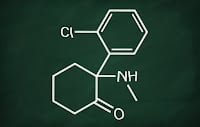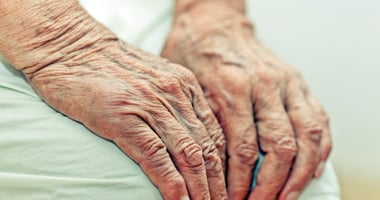Illicit Ketamine Use Linked to Depression in Youth

Recreational ketamine use appears to be associated with depressive symptoms in youth, a study in the American Journal on Addictions has found. The study also suggests that the higher the dose of ketamine and more frequent use, the higher the risk of depression.
“Although recent trials suggest that ketamine administration in clinical settings is efficacious in treating treatment-resistant depression, our study demonstrates that past-year recreational ketamine use is actually a risk factor for reporting current depressive symptoms among adolescents,” wrote Joseph J. Palamar, Ph.D., of the New York University Grossman School of Medicine and colleagues.
The researchers examined data from 15,673 youth who participated in the Monitoring the Future survey, an annual survey administered to middle- and high-school students in approximately 130 public and private schools in the 48 contiguous states. Researchers drew their data from surveys administered from 2016 to 2019, and majority of the sample examined was at least 18 years old when they took the survey.
In the surveys, participants were asked how much they agreed with the following four statements:
- Life is often meaningless.
- The future often seems hopeless.
- I enjoy life as much as anyone.
- It feels good to be alive.
Participants rated their agreement as “agree,” “mostly agree,” “neither,” “mostly disagree,” or “disagree.” The researchers then scored the students’ responses and defined students with scores in the top 25th percentile as having a high level of depression.
Participants were also asked how often in the past year they had used alcohol, cannabis, cocaine, ketamine, and heroin and how often they engaged in nonmedical use of prescription amphetamine, opioids, sedatives, and tranquilizers.
The prevalence of high-level depression was 37%, 65%, and 70% greater among participants who took illicit ketamine 1-2 times, 3-9 times, or 10 times or more, respectively, in the previous year compared with participants who did not take illicit ketamine.
“These results begin to address the gap that exists in the literature regarding the association between depressive symptoms and nonmedical or recreational ketamine use, but further research needs to be conducted to investigate the temporal associations between depressive symptoms and ketamine use in both the adolescent and adult population,” Palamar and colleagues concluded.
For related information, see the American Journal of Psychiatry article “Efficacy of Intravenous Ketamine in Adolescent Treatment-Resistant Depression: A Randomized Midazolam-Controlled Trial.”
(Image: iStock/makaule)
You Have Till Monday to Vote in APA's 2022 Election!
The voting period for APA’s 2022 election closes next week. You can vote by using the ballot you were emailed or clicking on “Vote Today” here or on APA’s website. Take time to learn more about this year’s candidates on the same site and view the archived town halls in which candidates responded to key questions. The deadline to vote is Monday, January 31, at 11:59 p.m. ET.





